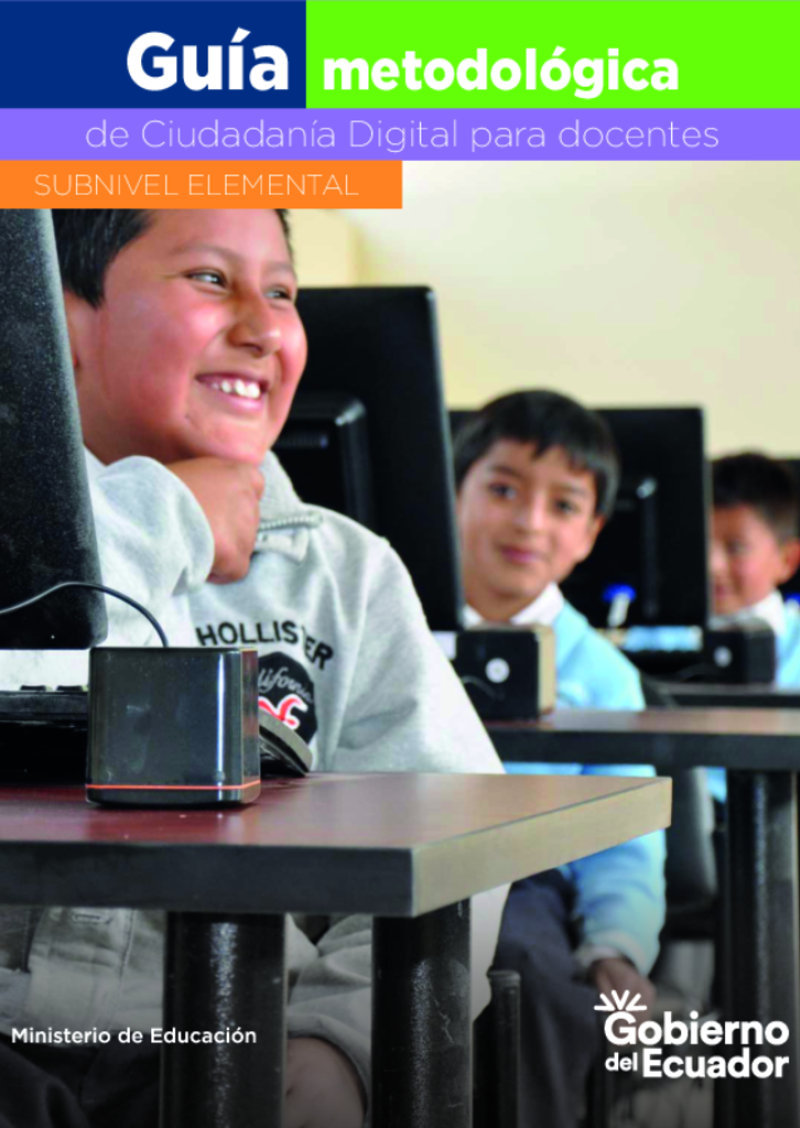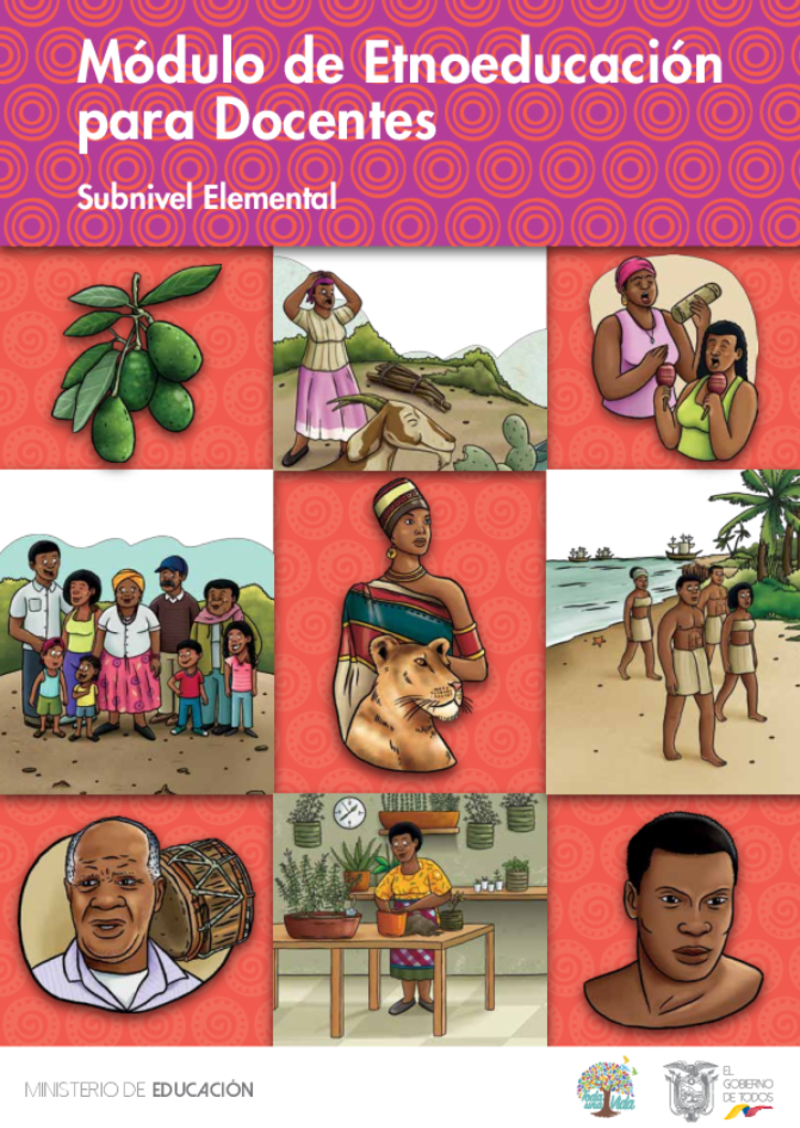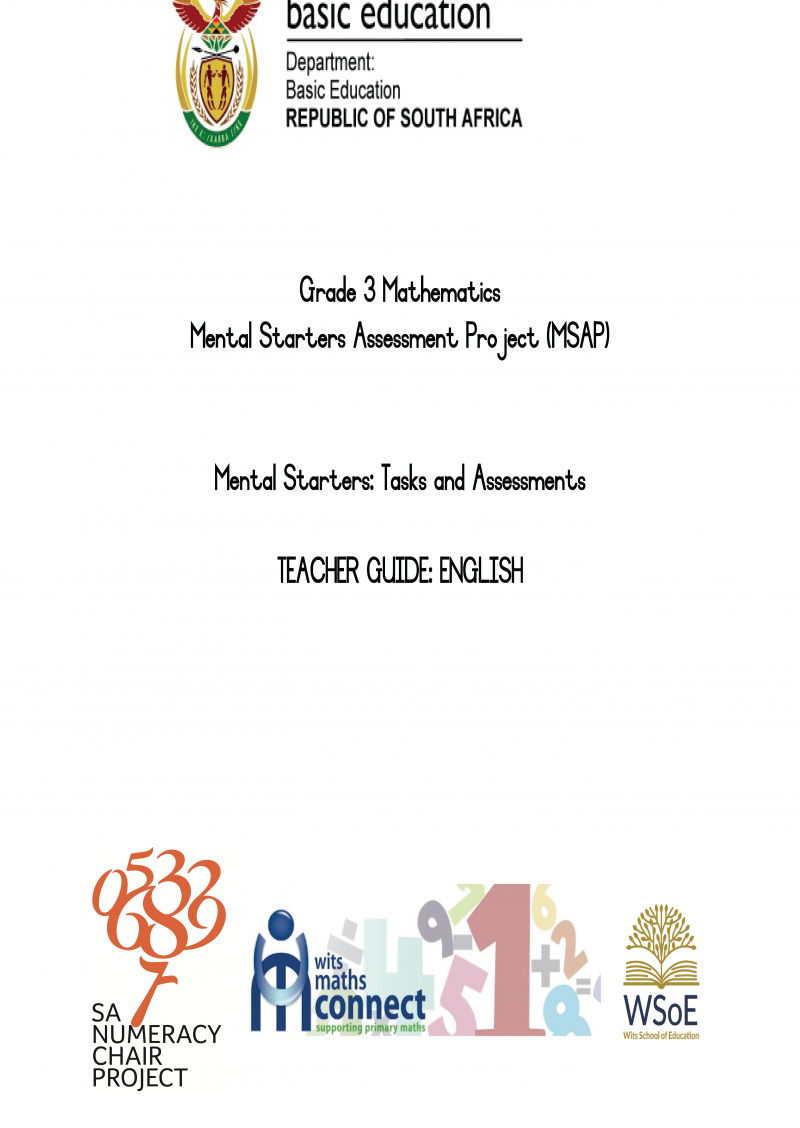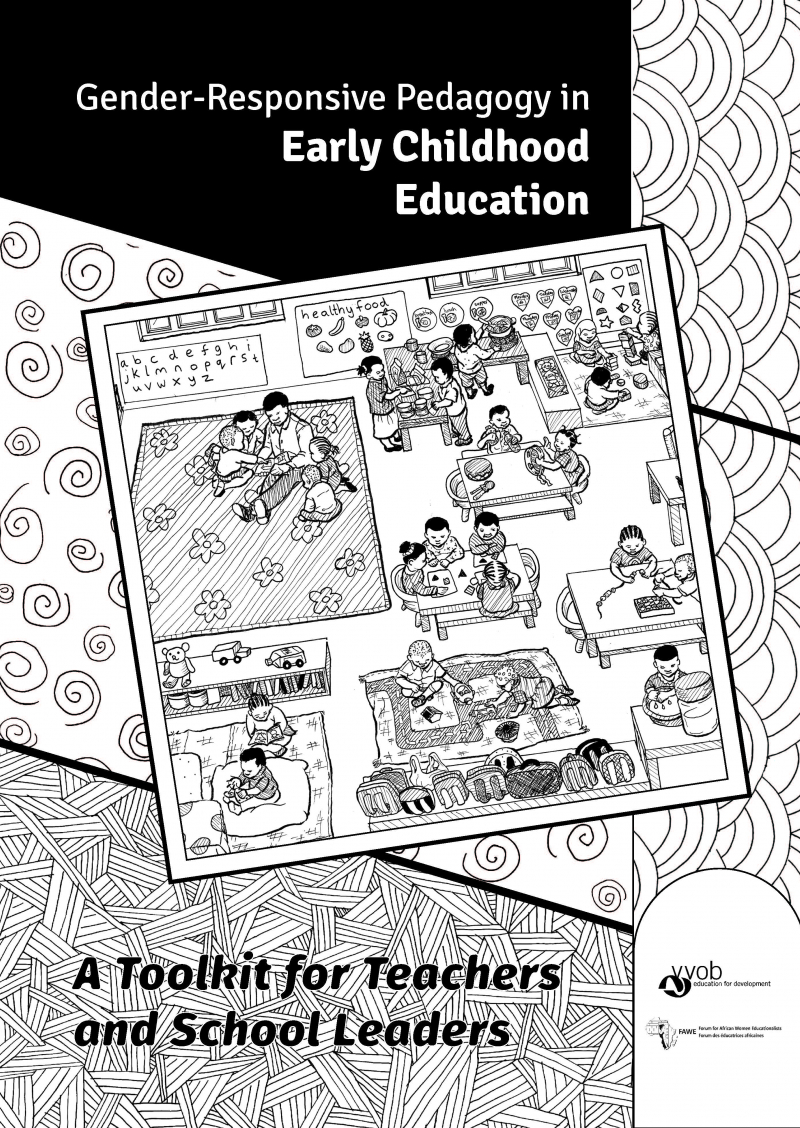Centro de Recursos para Docentes
Visualizar 1 - 6 de 6
Guía metodológica de Ciudadanía Digital para docentes - Subnivel Elemental
Este recurso sobre ciudadanía digital ofrece definiciones clave y aborda problemáticas como la alfabetización digital, la convivencia en línea, y la protección y seguridad. Se exploran temas como la autorregulación, la privacidad, el discurso de odio, el cyberbullying y el grooming. Además, se fomenta la reflexión sobre noticias falsas, identidad digital y estereotipos, así como la creatividad y participación en el entorno digital. También se discuten los derechos digitales y la legislación relacionada con el uso seguro de Internet para niños y adolescentes en Ecuador.
Aprender haciendo con experiencias etnoeducativas
Esta guía a destinación de los docentes busca implementar la educación intercultural bilingüe, enfocándose en la etnoeducación afroecuatoriana. Ofrece ejemplos prácticos, orientaciones metodológicas y estrategias para ajustar los contenidos curriculares. Además, promueve la formación continua de docentes y la participación comunitaria, fortaleciendo la identidad cultural y la memoria colectiva. También sugiere el uso de herramientas tecnológicas y materiales didácticos para enriquecer el aprendizaje.
Módulo de Etnoeducación para Docentes - Nivel Elemental
Este recurso pedagógico a destinación de los docentes y elaborado por el Ministerio de Educación de Ecuador, incluye definiciones desde distintas perspectivas, como la sociológica y la psicopedagógica. Proporciona una contextualización curricular, vinculando los aprendizajes y competencias definidos en el currículo nacional ecuatoriano. Además, ofrece planes de lecciones y recursos para trabajar con alumnos desde la educación primaria hasta la secundaria baja, abordando temas históricos, de organización social y de las tradiciones de las poblaciones afrodescendientes del país.
Teaching and Learning with Living Heritage: A Resource Kit for Teachers
This resource kit includes several components that provide teachers with information on why and how to incorporate living heritage into their school based activities. It was developed as a result of the UNESCO–EU initiative on cultural heritage and education, under the European Year of Cultural Heritage in 2018, and it builds on projects across a variety of subjects developed by teacher from 10 countries.
Mathematics lesson starters for Grade 3 learners
A set of teacher guides containing each 6 Mental Mathematics Lesson Starter units for Grade 3 learners, in alignment with the South African curriculum. A different calculation strategy is in focus in each unit. These calculation strategies are taken from the curriculum. Each unit covers a particular group of connected skills, and the aim is to move learners on from counting in ones on their fingers or with tally marks on paper.
Each unit is three weeks long; it begins and ends with a short test for the learners. Marking these tests provides information for the teacher and the learners about how much they have improved in using that particular set of skills during the three weeks. Within each unit, the focus is on three types of calculations: fluency, strategic calculating and strategic thinking.
Working through the Lesson Starters in each unit should lead to improvements in learners’ performance from the pre to post-tests. These improvements show progress in mental mathematics skills and number sense.
The guide is available in 11 official languages of South Africa.
Gender-responsive pedagogy in early childhood education. A toolkit for teachers and school leaders
The toolkit offers an introduction to gender-responsive pedagogy in early childhood education and serves as a practical guide that can be adapted to any context and the related needs. It provides teachers at early education practical tips to ensure they are able to offer children a learning environment that is free of prejudice and stereotypes. It is a source of ideas that individual teachers and school leaders can put to immediate use in their classrooms and schools. The toolkit was pre-trialled in three countries: Rwanda, South Africa and Zambia, and it can be contextualised for implementation in different African countries.





